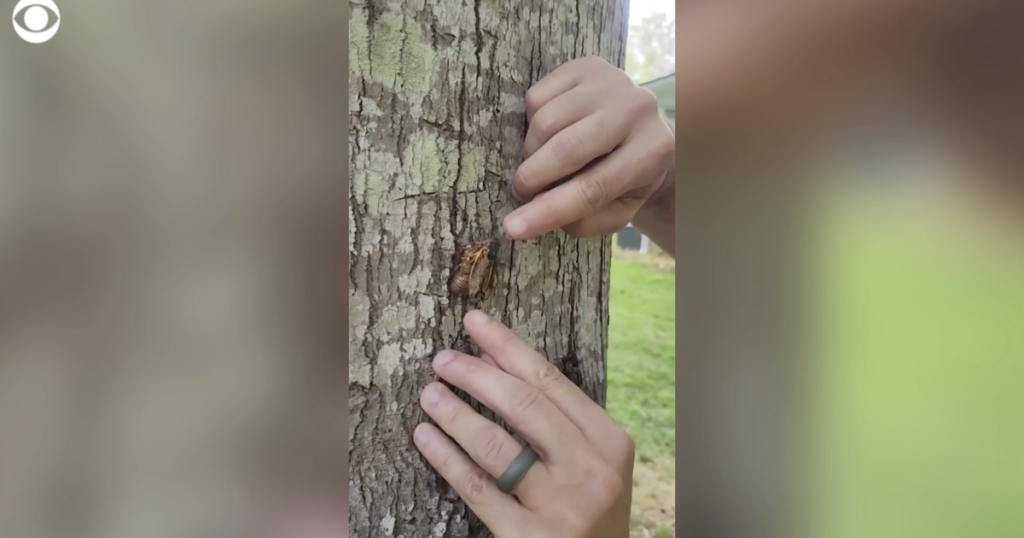Cicadas are returning by the trillions in the U.S. this year in a synchronized emergence that begins when the dirt reaches a precise 64 degrees. Two cicada broods are emerging at the same time this year – Brood XIX in the Southeast and Brood XIII in the Midwest. Cicadas live underground for most of their lives, emerging only at the end of their 13 or 17-year cycles to mate and then die, with their babies burrowing into the soil to await their next emergence. The emergence of cicadas is expected to occur in May or June in most places, with some states already experiencing the buzzing bugs.
In some states, such as near the Georgia-South Carolina border and Illinois, cicadas have already emerged. Videos show the insects filling the air with their buzzing sound, molting on tree trunks, and mating. Cicadas do not damage trees, as they feed on small branches for nutrients. Male cicadas emit a loud humming noise to attract females for mating, with the noise sometimes mistaken for sirens. The short lifespan of cicadas lasts only about a month above ground after emerging from their underground slumber, during which time they mate and lay eggs in woody plants.
People in North Carolina and Georgia have reported sightings of emerging cicadas, with videos capturing the loud noise the bugs emit during their mating process. Male cicadas produce a humming sound to attract female cicadas, with confused residents in South Carolina mistaking the noise for a siren or roar. Female cicadas lay their eggs in branches, injecting them with an ovipositor and potentially laying up to 600 eggs in a season. The eggs hatch about six weeks after being laid, but the parents die shortly after mating, completing their lifecycle above ground in about a month.
Some midwestern and southeastern states are expected to see both Brood XIX and Brood XIII converge this year, leading to a larger number of cicadas than usual. The insects emerge only when the dirt reaches 64 degrees, with the exact timing varying by location. Cicadas feed on small branches and do not cause harm to trees, with most trees remaining unharmed during their emergence. The buzzing sound of male cicadas trying to attract females during mating season may be mistaken for other noises, causing confusion among residents in different states. Despite the noise and large numbers, cicadas have a relatively short lifespan once they emerge above ground for mating and egg-laying.


